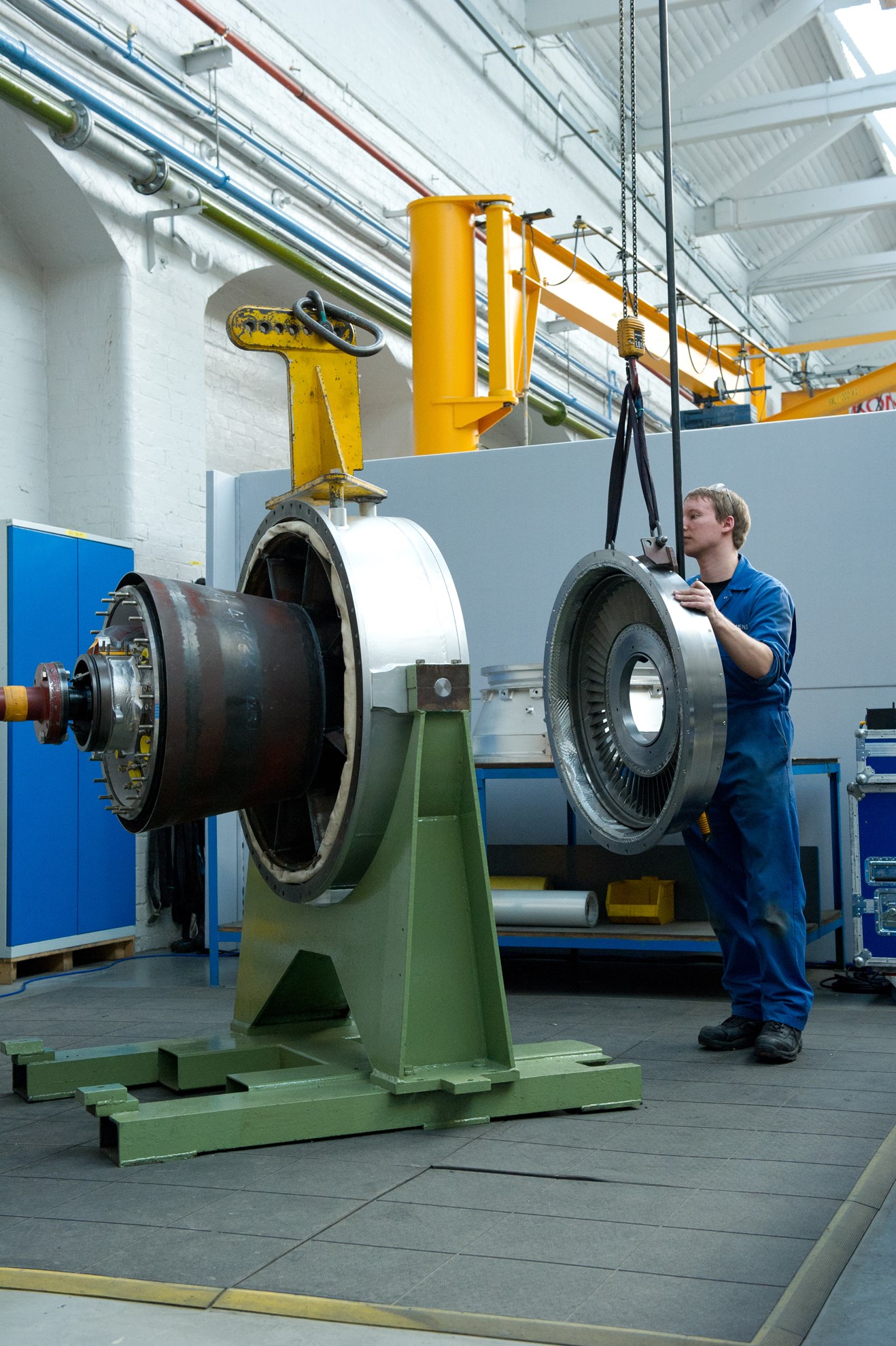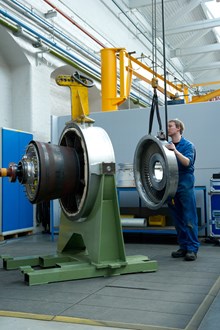Lincoln, 2012-May-30
UTCs create a route for technician engineers with practical skills that can be more readily used in the workplace. They give students an early career focus to help engender engineering aspiration through specialist teaching and equipment. All UTCs are supported by a university, a range of local employers and very often an FE college. This unique approach offers students a high quality, rounded, technical education which can lead to apprenticeships, foundation and higher degrees.
Toby Peyton-Jones, director of HR, Siemens UK & North West Europe, and recently appointed commissioner for the UK Commission for Employment and Skills, commenting on the UTC model for industry/academic collaboration said:
"UTC's are a great example of demand-led education and training collaboration. For Siemens and other employers UTCs are becoming a critical element of skills strategy aimed at supporting the competitiveness of our UK workforce. It is our very clear aim that they will become beacons of excellence for enabling the transition of young people into worthwhile careers."
The Lincoln UTC will specialise in Engineering with Core Science and develop as a centre of excellence that delivers high quality learning for all, with a particular commitment to achievement in mathematics. The UTC, which is planned to open in 2013/14, will reflect the local master plan’s aspiration for Lincoln to become a regional hub for technological innovation.
This is the second UTC that Siemens will support. In February this year, Siemens announced its involvement in the first-ever UTC to open in the UK, in Walsall. The Black Country UTC in Walsall offers technically oriented courses of study with an academic pathway for 14 to 19 year olds.
Peyton-Jones said: "Siemens is driving the vocational agenda forward with its support of UTCs. Siemens was one of the first major engineering companies in the UK to promote new qualifications and apprenticeships that help young people become 'industry-ready.' The news about the Lincoln UTC, as well as our recent announcement about doubling our apprentice intake in September 2012 further confirms our commitment to the vocational path."
Professor Mary Stuart, vice chancellor of the University of Lincoln, said: "The Lincoln UTC announcement is tremendous news for the University, its partners and for the City. University Technical colleges provide an excellent route for young people to pursue careers in engineering and science that prepare students for future success in industry and ensure the highest standards of relevant and useful secondary education."
As a leading UK engineering company, Siemens is heavily involved in the national and local skills agenda. In Lincoln, Siemens works with schools and colleges to promote the STEM (science, technology, engineering and mathematics) agenda, and has a long-established apprenticeship and graduate programme. Siemens also helped establish the UK's first purpose-built engineering school in 20 years, in a unique award-winning industry/academic collaboration with the University of Lincoln.
-ENDS-
Notes to editors:
About Siemens in the UK
Siemens was established in the United Kingdom 169 years ago and now employs 12,972 people in the UK. Last year’s revenues were £4.4 billion*. As a leading global engineering and technology services company, Siemens provides innovative solutions to help tackle the world’s major challenges, across the key sectors of energy, industry, infrastructure & cities and healthcare. Siemens has offices and factories throughout the UK, with its headquarters in Frimley, Surrey. The company’s global headquarters is in Munich, Germany. For more information, visit www.siemens.co.uk
* Data includes intercompany revenue. Data may not be comparable with revenue reported in annual or interim reports.
For more information, contact:
Rachel Odams
PR Manager
Siemens plc
Tel. +44 (0)1604 696614
Mob: +44 (0)7808 824209
Rachel.odams@siemens.com
About The Baker Dearing Educational Trust
The Baker Dearing Educational Trust was founded by Lord Baker and Lord Dearing to promote University Technical Colleges. The organisation acts as a central body to provide advice and guidance and will guide the University Technical Colleges movement over the long term. For more information about the Trust, visit: www.utcolleges.org
About University Technical Colleges
They are distinct in three important ways:
1) They are 14-19 not 11-18 schools
2) Each must be sponsored by a university and local employers
3) Employers will be involved from the start in shaping the curriculum
UTCs are a high quality new route to education and training which follows through to further study and employment. They are a radical solution to the totally inadequate number of technicians and engineers in the country. They are free standing colleges for 600 - 800 14 to 19 year old students, with a working day of 8:30am - 5:30pm. Students spend two days a week on practical study and three days a week on academic study linking the hand with the mind. Each UTC provides at least one technical specialism alongside the key GCSEs in English, maths and science, as well as a foreign language, humanities, finance, business, entrepreneurial and employability skills.
All UTCs are supported by a university, a range of local employers and very often an FE college. This unique approach offers students a high quality, rounded, technical education which can lead to apprenticeships, foundation and higher degrees.
Local employers both big and small have a major and continuing role via the governance of the UTC. They help to shape the curriculum and relate it to future jobs that match the needs of the local economy. Students in turn acquire the skills and knowledge employers are looking for.



